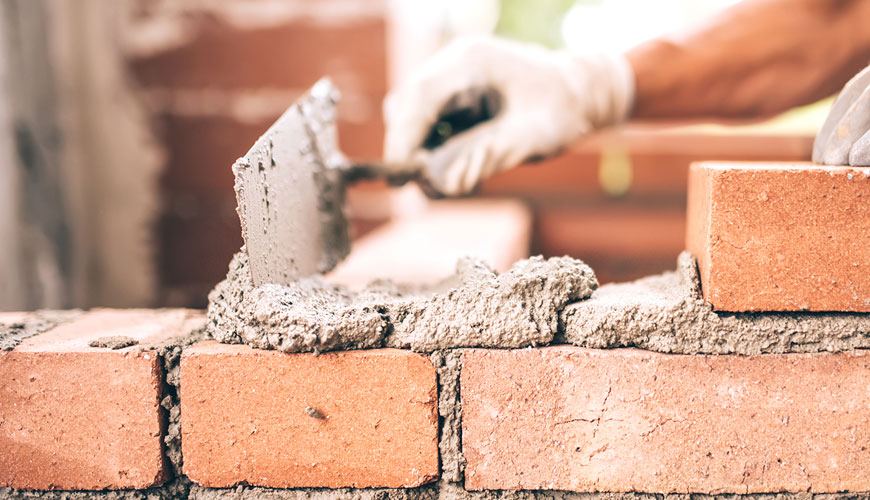

This European Standard specifies methods for determining the standard consistency, setting times and strength of cements.

The method is applied to ordinary cements and other cements and materials where standards require this method. For example, it may not be valid for other cement types with very short initial setting times. The method is used to evaluate whether the setting time and strength of the cement complies with its specification.
This part of the EN 196 standard describes reference methods and allows the use of alternative procedures and equipment provided that they are calibrated against the reference methods, as stated in the notes. In case of dispute, only reference equipment and procedures are used.
Cement paste of standard consistency has a certain resistance to penetration by the standard piston. The water required for such a paste is determined by trial penetrations of pastes with different water contents. The setting time is determined by observing the penetration of the needle into the cement paste of standard consistency until it reaches a certain value. Strength is determined by observing the volume expansion of cement paste of standard consistency, indicated by the relative movement of the two needles.
The initial setting time is the point at which the cement paste begins to harden. This is a very important factor in the construction process because it affects how long workers will have to work before the cement hardens.
Final setting time is the point at which the cement paste hardens sufficiently and begins to gain strength. At the end of this period, loading can be started without damaging the cement structure. Setting times are determined using a Vicat apparatus that measures at various intervals the penetration of a needle into a cement paste of standard consistency.
This standard is widely used by cement manufacturers, construction companies, material testing laboratories and regulatory bodies to evaluate the quality of cement before its use in construction projects. Compliance with EN 196-3 helps prevent construction errors and ensure the longevity and safety of structures.
EUROLAB assists manufacturers with EN 196-3 test compliance. Our test experts, with their professional working mission and principles, provide you, our manufacturers and suppliers, the best service and controlled testing process in our laboratories. Thanks to these services, businesses receive more effective, high-performance and quality testing services and provide safe, fast and uninterrupted service to their customers.
To get an appointment, to get more detailed information or to request an evaluation, you can ask us to fill in our form and reach you.